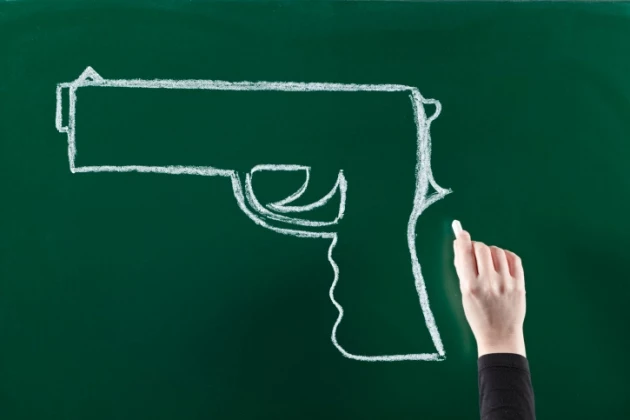How to Fight Back When Your Sexual Privacy is Compromised Online
 Finally, some good news for people who have been (or who have been anxious about becoming) victims of revenge porn! December 2015 marked the first time that a law specifically referencing and criminalizing revenge porn has been on the books in North Carolina. This addition to our legal system was added after an alarming case of privacy infringement occurred at Hough High School in Cornelius, NC. Authorities say that dozens of students had been blackmailed, and nearly a hundred nude photos were released.
Finally, some good news for people who have been (or who have been anxious about becoming) victims of revenge porn! December 2015 marked the first time that a law specifically referencing and criminalizing revenge porn has been on the books in North Carolina. This addition to our legal system was added after an alarming case of privacy infringement occurred at Hough High School in Cornelius, NC. Authorities say that dozens of students had been blackmailed, and nearly a hundred nude photos were released.
Despite the law’s origins, it doesn’t only apply in cases related to minors. Breaking this law now constitutes as a felony offense, and is defined as “releasing explicit photos or videos of a person without their consent, with intent to harass, extort, or intimidate.” North Carolina is now one of twenty-six states with revenge porn laws, up from a mere sixteen at the start of 2014. We are also one of only six states that classify the non-consensual distribution of explicit materials as a felony. In most states, it is only classified as a misdemeanor (often jumping to a felony for a repeat offender).
Luckily, it’s not only lawmakers who are starting to see the need for these restrictions and ramifications. In the summer of 2014, Microsoft (including Bing, OneDrive, and Xbox Live) and Google created sites specifically dedicated to the anonymous reporting of revenge porn. Many other companies followed their lead during the rest of 2015, and have included privacy and harassment clauses in their community guidelines, as well as created anonymous reporting forms. Participating sites now include Instagram, Facebook, Twitter, Reddit, Pornhub, and Tumblr. This commitment, by some of the largest search engines and social media sites in use today, helps to combat one of the biggest issues that face victims of revenge porn: the daunting and near-impossible task of removing their stolen images from the Web.
By using the links and forms outlined by C. A. Goldberg PLLC, that focuses on Internet privacy and abuse, domestic violence, and sexual consent, victims can anonymously report images that have been posted without their consent. While these companies don’t have the ability to remove images from the Internet entirely, this new reporting system does render reported images unsearchable on their specific sites and search engines, giving some privacy and control back to victims. Continue reading Fighting Revenge Porn

 Ella Baker, an unsung hero of the Civil Rights movement, once said, “The older I get the better I know that the secret of my going on is when the reins are in the hands of the young, who dare to run against the storm.” As a sexual violence prevention educator and youth co-conspirator, I feel the wisdom in these words every time I have the opportunity to witness young people working toward justice and asking for what they need. In fact, youth have been at the forefront of most of the major social movements of the past century.
Ella Baker, an unsung hero of the Civil Rights movement, once said, “The older I get the better I know that the secret of my going on is when the reins are in the hands of the young, who dare to run against the storm.” As a sexual violence prevention educator and youth co-conspirator, I feel the wisdom in these words every time I have the opportunity to witness young people working toward justice and asking for what they need. In fact, youth have been at the forefront of most of the major social movements of the past century.


 When discussing
When discussing 
 Sexual violence affects all communities, even ours. Recent events and conversations about sexual assault at East Chapel Hill High School remind us of this.
Sexual violence affects all communities, even ours. Recent events and conversations about sexual assault at East Chapel Hill High School remind us of this.
